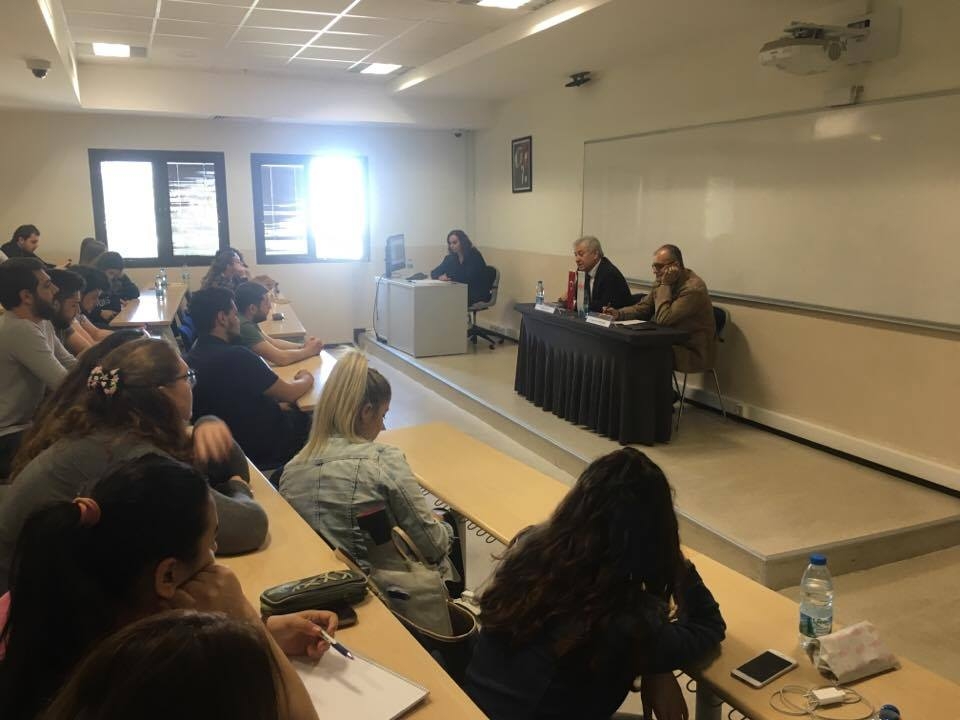
...
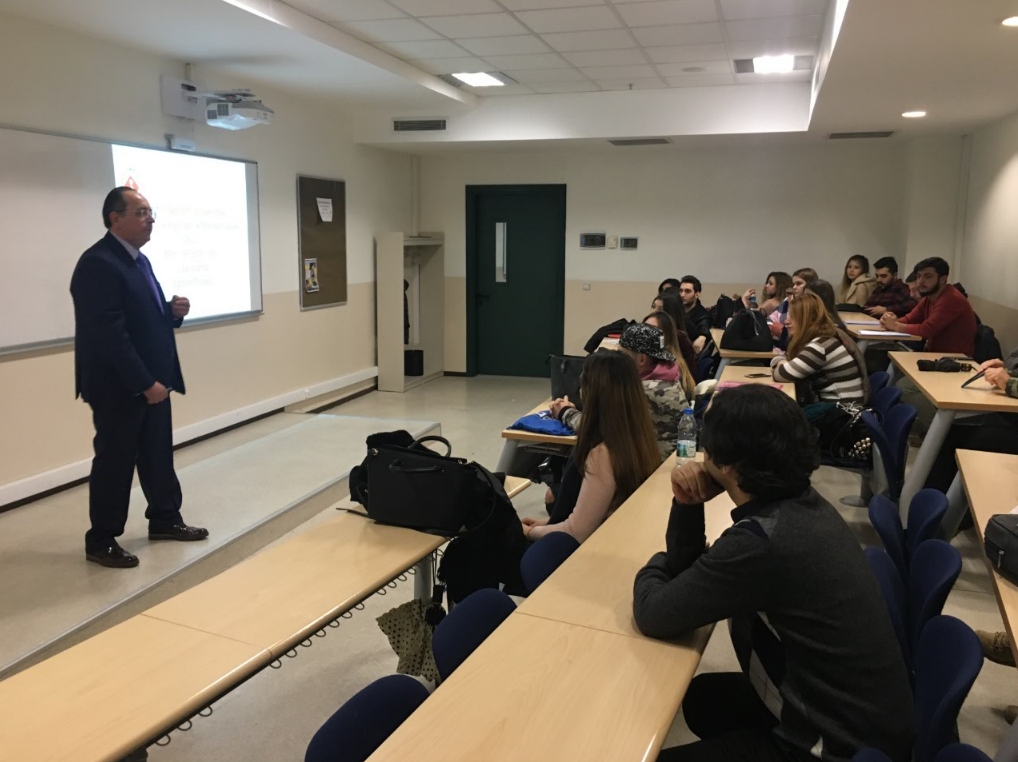
...
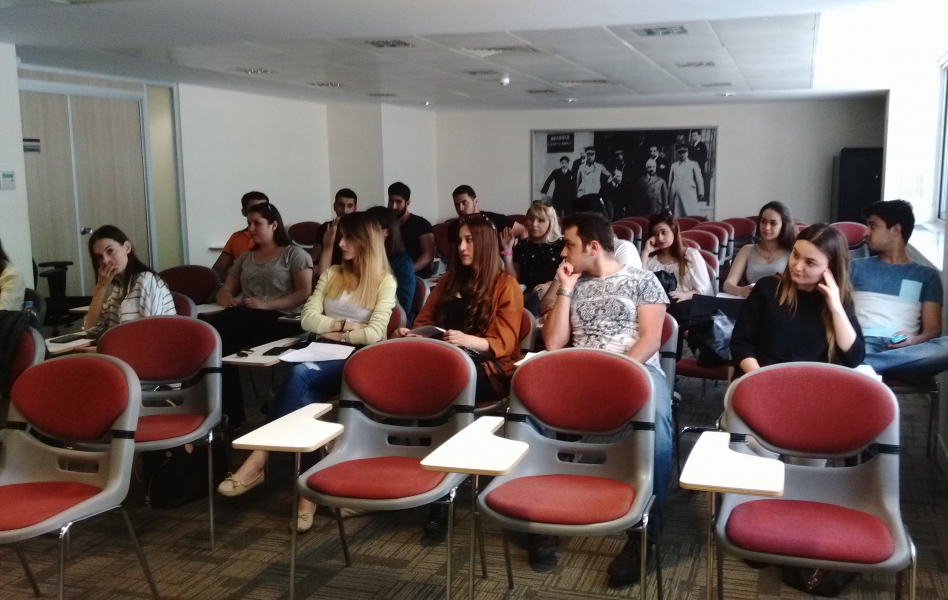
...
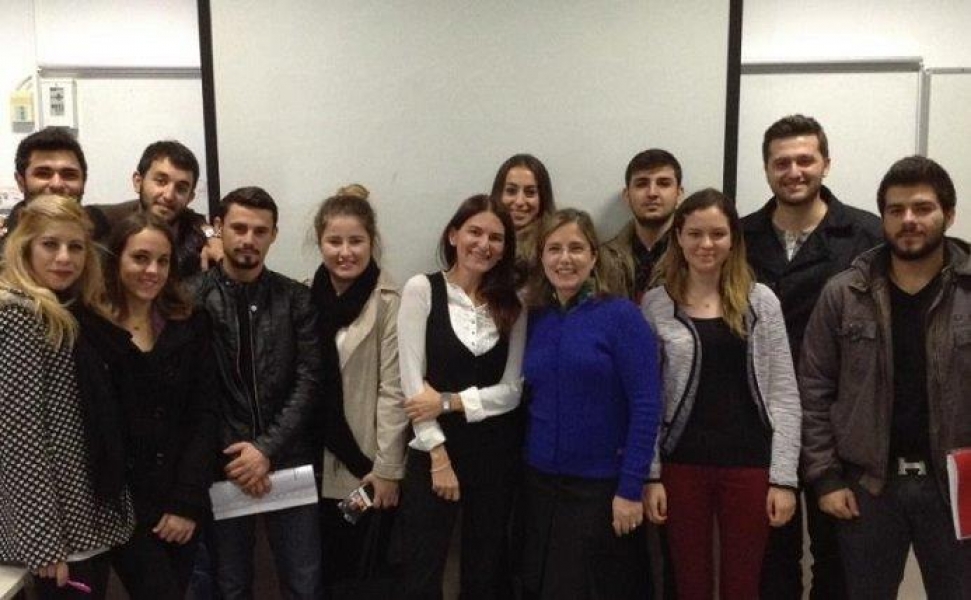
...
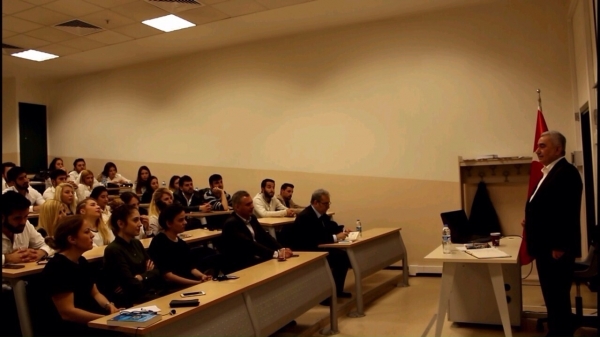
...

...
| Course Name |
Princ. of Atatürk and Hist. of Revol. II
|
|
Code
|
Semester
|
Theory
(hour/week) |
Application/Lab
(hour/week) |
Local Credits
|
ECTS
|
|
TRH 102
|
Fall/Spring
|
2
|
0
|
2
|
1
|
| Prerequisites |
None
|
|||||
| Course Language |
Turkish
|
|||||
| Course Type |
Service Course
|
|||||
| Course Level |
First Cycle
|
|||||
| Mode of Delivery | - | |||||
| Teaching Methods and Techniques of the Course | DiscussionQ&ALecture / Presentation | |||||
| National Occupation Classification | - | |||||
| Course Coordinator | ||||||
| Course Lecturer(s) | ||||||
| Assistant(s) | - | |||||
| Course Objectives | Experienced in the transition to the Republic of Turkey from the Ottoman Empire State advances to students. The Republic of Turkey is being established through the social, political, educational and cultural etc. to understand the revolution in the field and the purpose of these reforms. |
| Learning Outcomes |
The students who succeeded in this course;
|
| Course Description | With special reference to the Principals of Atatürk the course will examine the philosophy of the foundation and existence of the republican regime as well as the democratic developments in secular Turkey during the twentieth century and in the era of extending globalization. |
| Related Sustainable Development Goals |
|
|
Core Courses | |
| Major Area Courses | ||
| Supportive Courses | ||
| Media and Management Skills Courses | ||
| Transferable Skill Courses |
| Week | Subjects | Related Preparation |
| 1 | Lausanne Peace Treaty, Significance and Results | Bernard Lewis, Modern Türkiye’nin Doğuşu, s: 31-57 |
| 2 | Political Revolutions | Bernard Lewis, Modern Türkiye’nin Doğuşu, s:104-179 |
| 3 | Revolutions in the field of law | Refik Turan, Mustafa Sarhan, Atatürk İlkeleri ve İnkılap Tarihi, s. 42-44 |
| 4 | Revolutions in Education and Culture | Refik Turan, Mustafa Sarhan, Atatürk İlkeleri ve İnkılap Tarihi, s. 44-58 |
| 5 | Social Revolutions | Refik Turan, Mustafa Sarhan, Atatürk İlkeleri ve İnkılap Tarihi, s. 65-78 |
| 6 | Revolutions in Economy and Health | Mustafa Kemal Atatürk, Nutuk, 100-150 |
| 7 | Turkish Foreign Policy in Atatürk Period (1923-1932) | Refik Turan, Mustafa Sarhan, Atatürk İlkeleri ve İnkılap Tarihi, s. 118-121 |
| 8 | Turkish Foreign Policy in Atatürk Period (1932-1938) | Refik Turan, Mustafa Sarhan, Atatürk İlkeleri ve İnkılap Tarihi, s. 132-140 |
| 9 | Basic Principles of Turkish Revolution | Refik Turan, Mustafa Sarhan, Atatürk İlkeleri ve İnkılap Tarihi, s. 176-192 |
| 10 | Integrative Principles | Refik Turan, Mustafa Sarhan, Atatürk İlkeleri ve İnkılap Tarihi, s.192-220 |
| 11 | İsmet İnönü Period | Refik Turan, Mustafa Sarhan, Atatürk İlkeleri ve İnkılap Tarihi, s.227-248 |
| 12 | Demokrat Party Period | Bernard Lewis, Modern Türkiye’nin Doğuşu, s:393-437 |
| 13 | Turkey During the Cold War | Bernard Lewis, Modern Türkiye’nin Doğuşu, s:393-437 |
| 14 | Cyprus Issue | Bernard Lewis, Modern Türkiye’nin Doğuşu, s: 31-57 |
| 15 | Turkey and the World from 1960’ies to 80’ies | |
| 16 | A General EvaluationEnd of the Cold War and the Impacts of Globalization |
| Course Notes/Textbooks | Refik Turan, Mustafa Safran, Atatürk İlkeleri ve İnkılap Tarihi, Ankara, 2011 |
| Suggested Readings/Materials | Mustafa Kemal Atatürk, Nutuk, Atatürk Araştırma Merkezi, Ankara 2005 Bernard Lewis, Modern Türkiye’nin Doğuşu, Ankara, 2017 Lord Kinross, Atatürk, İstanbul, 1981 Mahmut Goloğlu, Devrimler ve Tepkileri, İstanbul, 2009 |
| Semester Activities | Number | Weigthing |
| Participation | ||
| Laboratory / Application | ||
| Field Work | ||
| Quizzes / Studio Critiques |
1
|
20
|
| Portfolio | ||
| Homework / Assignments | ||
| Presentation / Jury | ||
| Project | ||
| Seminar / Workshop | ||
| Oral Exams | ||
| Midterm |
1
|
35
|
| Final Exam |
1
|
45
|
| Total |
| Weighting of Semester Activities on the Final Grade |
3
|
55
|
| Weighting of End-of-Semester Activities on the Final Grade |
1
|
45
|
| Total |
| Semester Activities | Number | Duration (Hours) | Workload |
|---|---|---|---|
| Theoretical Course Hours (Including exam week: 16 x total hours) |
16
|
2
|
32
|
| Laboratory / Application Hours (Including exam week: '.16.' x total hours) |
16
|
0
|
|
| Study Hours Out of Class |
14
|
1
|
14
|
| Field Work |
0
|
||
| Quizzes / Studio Critiques |
1
|
2
|
2
|
| Portfolio |
0
|
||
| Homework / Assignments |
0
|
||
| Presentation / Jury |
0
|
||
| Project |
0
|
||
| Seminar / Workshop |
0
|
||
| Oral Exam |
0
|
||
| Midterms |
1
|
1
|
1
|
| Final Exam |
1
|
1
|
1
|
| Total |
50
|
|
#
|
Program Competencies/Outcomes |
* Contribution Level
|
|||||
|
1
|
2
|
3
|
4
|
5
|
|||
| 1 |
To be able to develop themselves in the subjects of obtaining the financial resources necessary for the activities of individuals and enterprises under the most favorable conditions and examining the use of the accumulated funds. |
-
|
-
|
-
|
-
|
-
|
|
| 2 |
To be able to discuss the role, importance and functions of the institutions providing banking and insurance services in the economic system |
-
|
-
|
-
|
-
|
-
|
|
| 3 |
To be able to evaluate the organizational structure, business processes, and service portfolios of banks, insurance companies, and other financial institutions operating in the sector. |
-
|
-
|
-
|
-
|
-
|
|
| 4 |
To be able to develop skills in identifying, measuring, and assessing financial and operational risks, and to acquire fundamental knowledge to understand and apply insurance products against these risks. |
-
|
-
|
-
|
-
|
-
|
|
| 5 |
To be able to recognize financial products offered in the banking and insurance sector, and to gain skills in effective marketing and sales, as well as managing long-term customer relationships. |
-
|
-
|
-
|
-
|
-
|
|
| 6 |
To be able to possess basic legal knowledge and closely monitor legislative changes relevant to the field. |
-
|
-
|
-
|
-
|
-
|
|
| 7 |
To be able to possess basic knowledge of accounting and analyze financial statements to evaluate the financial status of businesses. |
-
|
-
|
-
|
-
|
-
|
|
| 8 |
To be able to follow technological innovations in the financial sector and acquire knowledge about the role of blockchain and artificial intelligence applications in the industry. |
-
|
-
|
-
|
-
|
-
|
|
| 9 |
To be able to make decisions based on the principles of professional ethics, accountability and responsibility |
-
|
-
|
-
|
-
|
-
|
|
| 10 |
To be able to follow international financial markets and global economic indicators by using English at least at the A2 level of the "European Language Portfolio" |
-
|
-
|
-
|
-
|
-
|
|
| 11 |
To be able to analyze and interpret banking and insurance data, and to develop data-driven strategies for financial decision-making. |
-
|
-
|
-
|
-
|
-
|
|
| 12 |
To be able to acquire knowledge about the components of national and international systems and the implementation of sector policies. |
-
|
-
|
-
|
X
|
-
|
|
| 13 |
To be able to direct his/her education to a further level of education |
-
|
-
|
-
|
-
|
-
|
|
*1 Lowest, 2 Low, 3 Average, 4 High, 5 Highest

...

...

...

...

...

...

As Izmir University of Economics transforms into a world-class university, it also raises successful young people with global competence.
More..Izmir University of Economics produces qualified knowledge and competent technologies.
More..Izmir University of Economics sees producing social benefit as its reason for existence.
More..